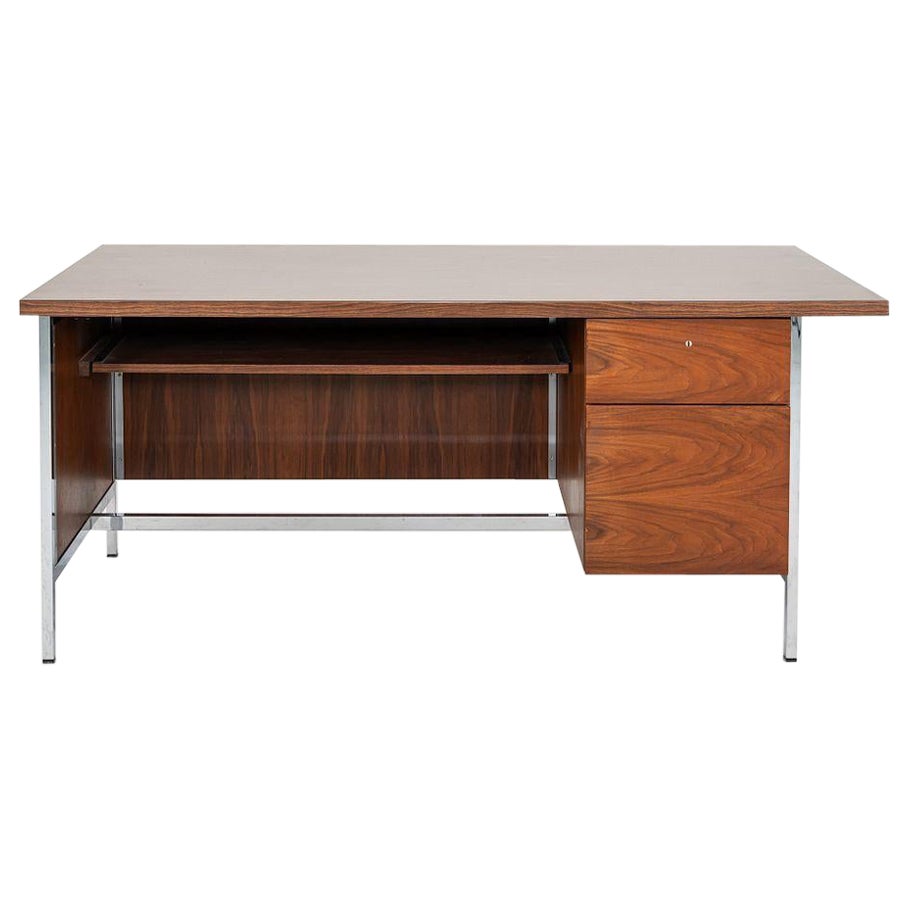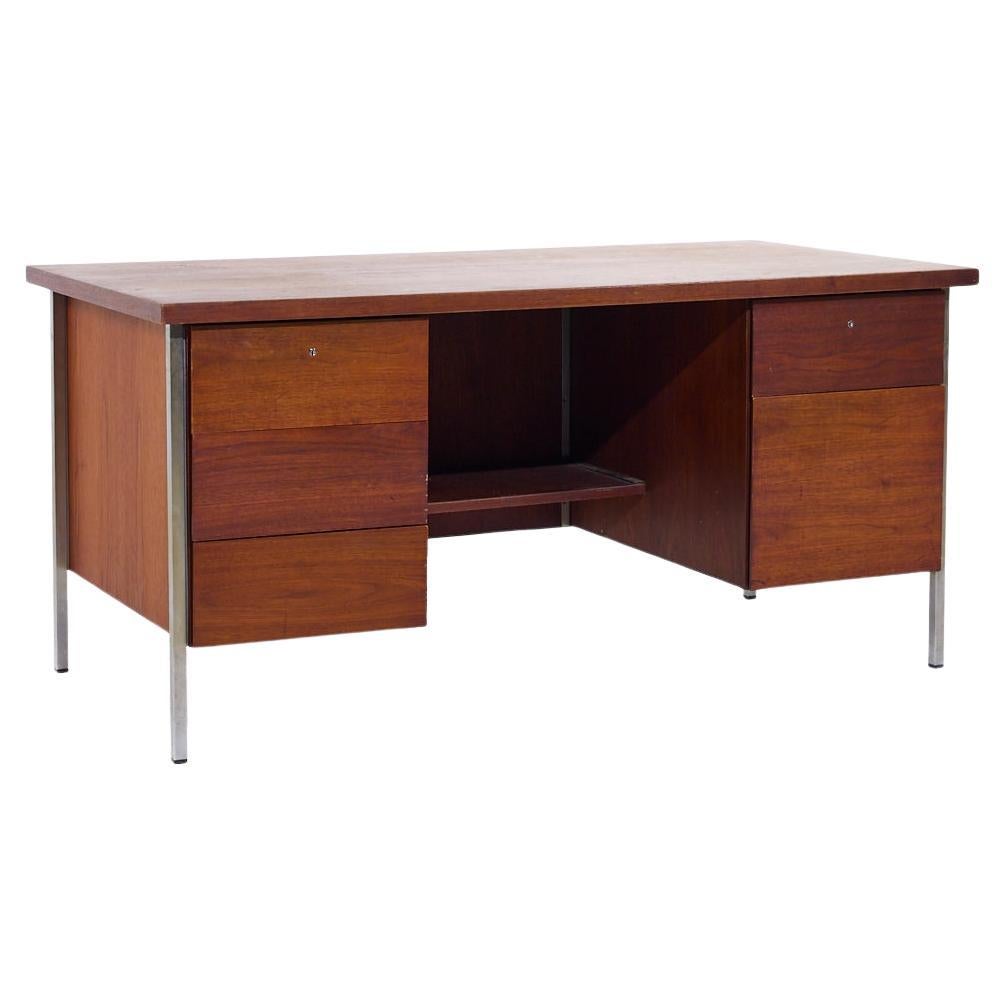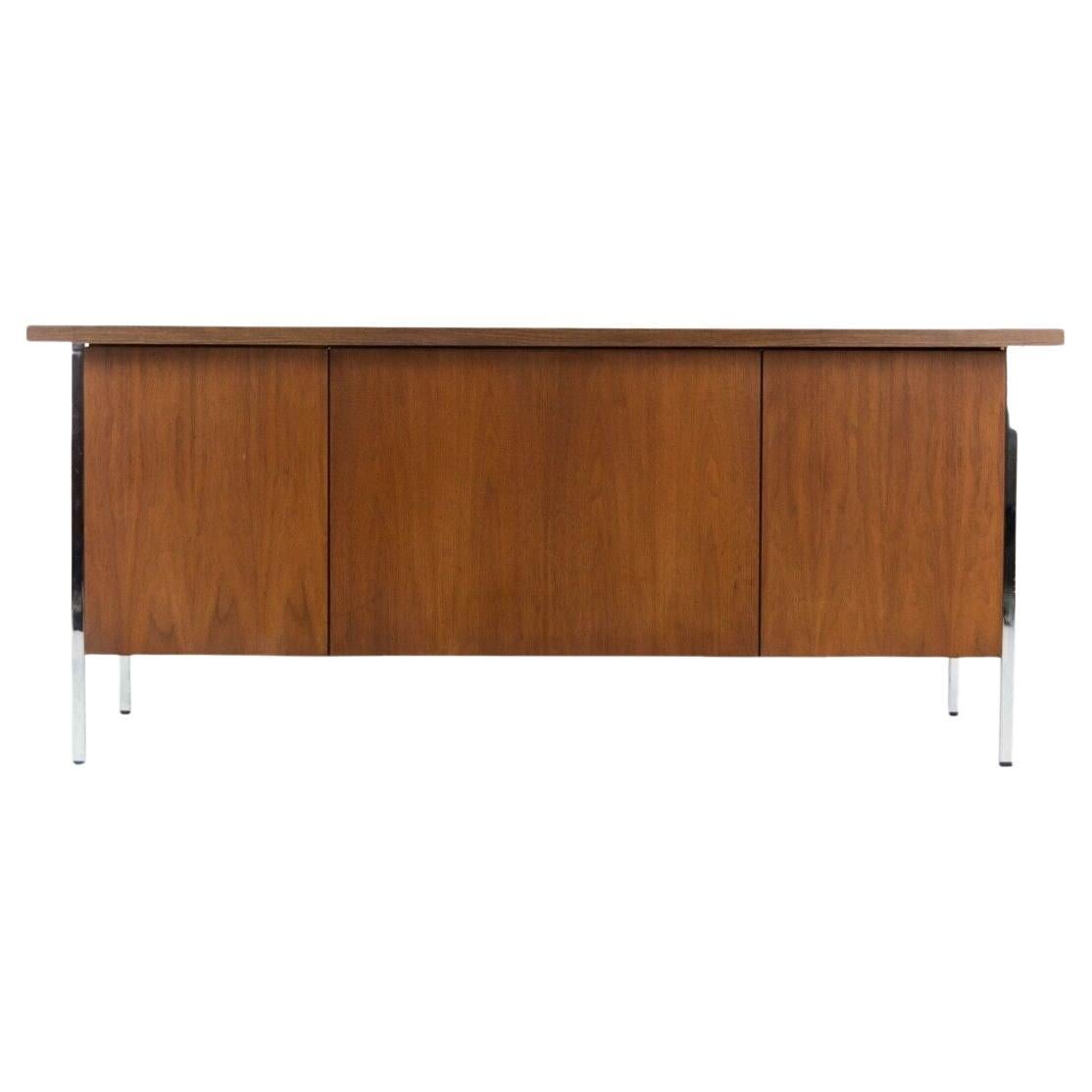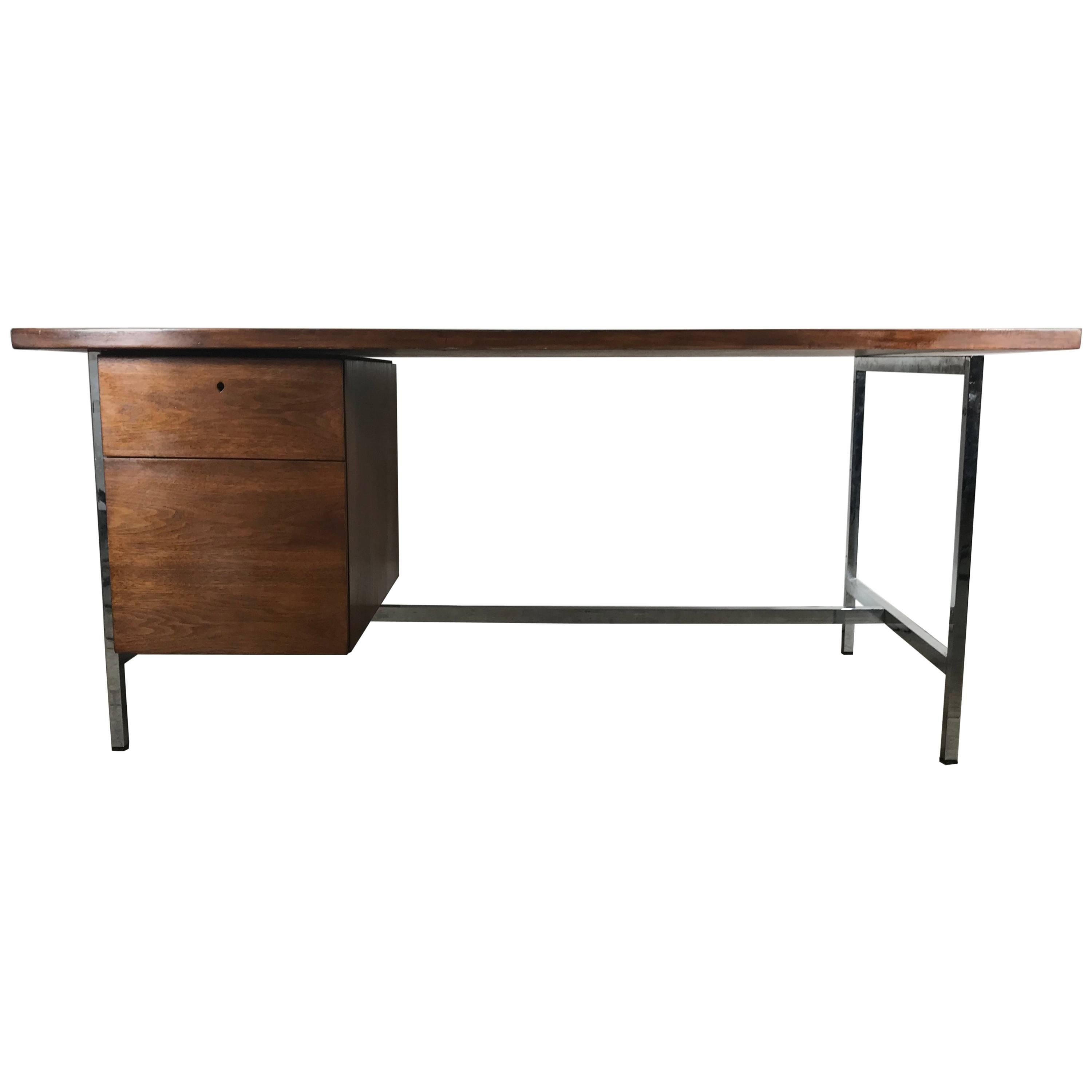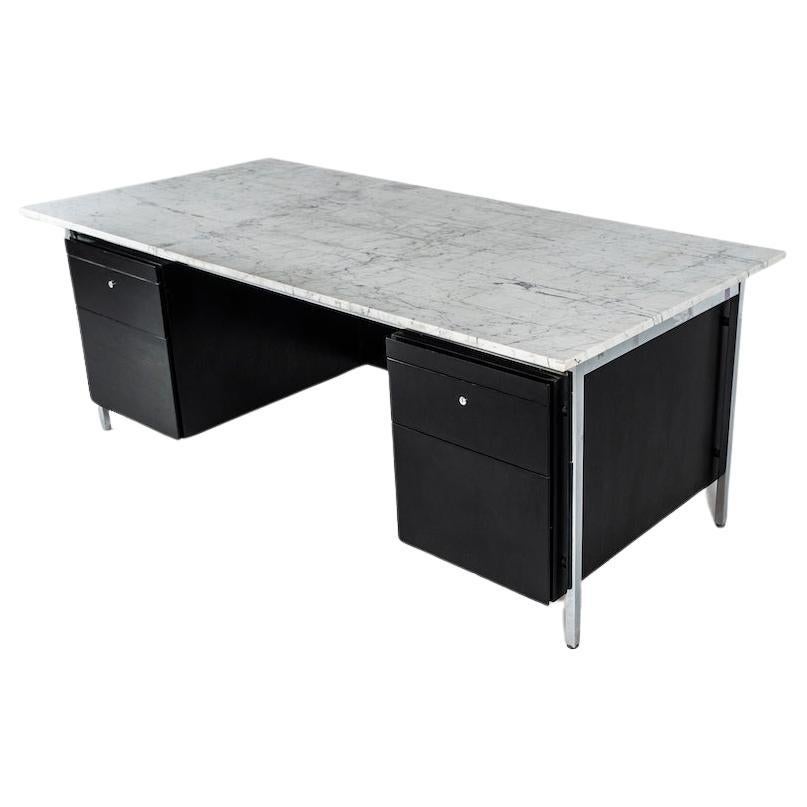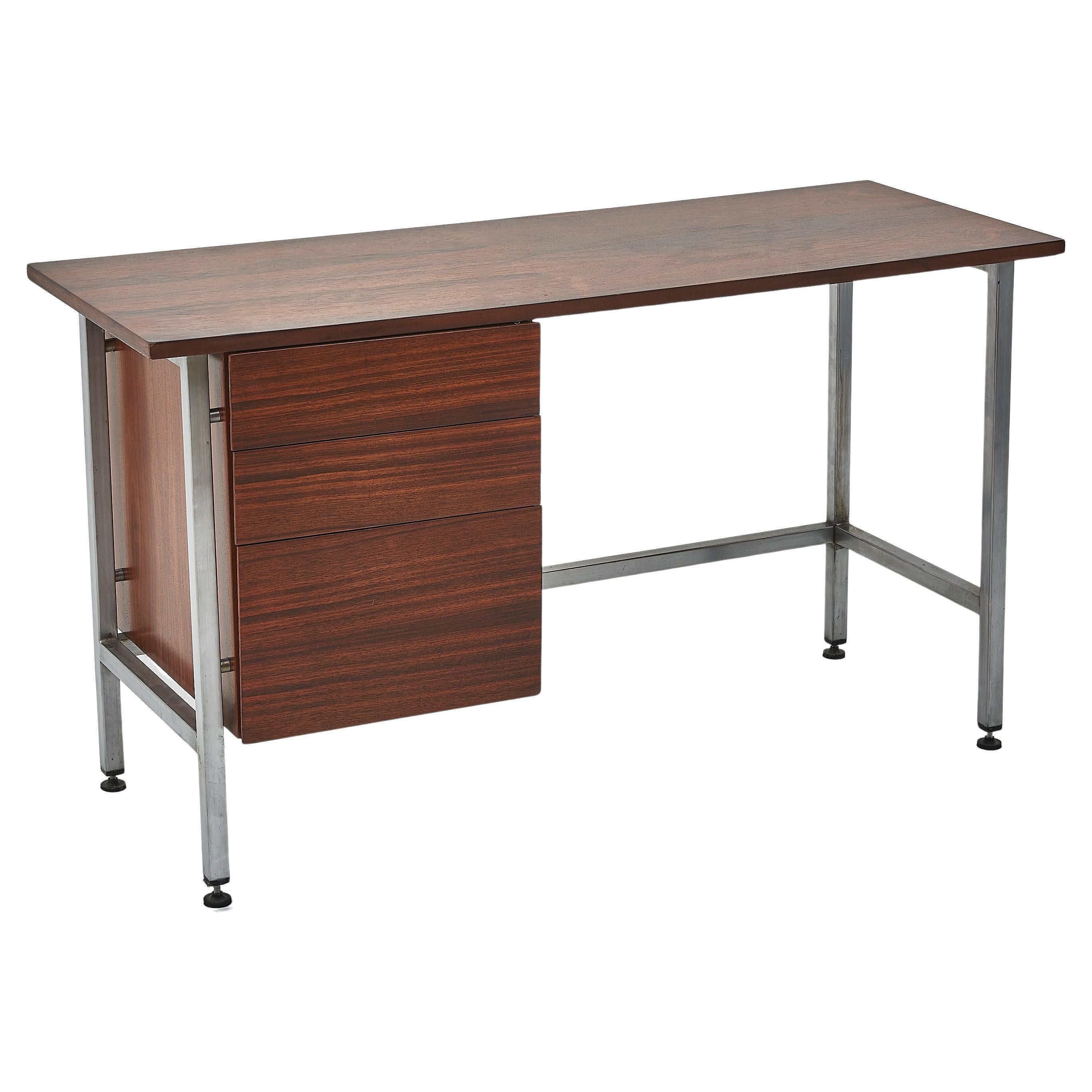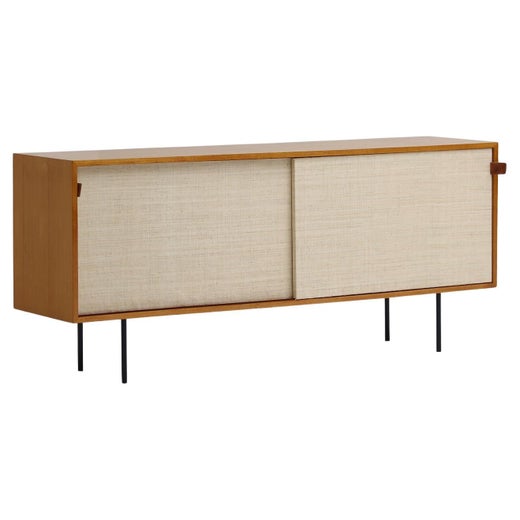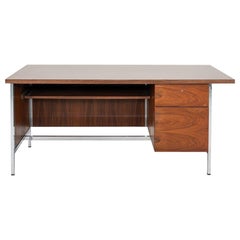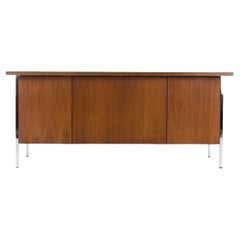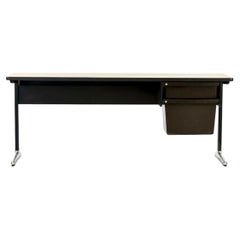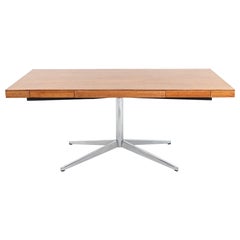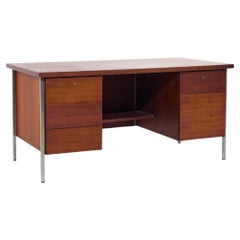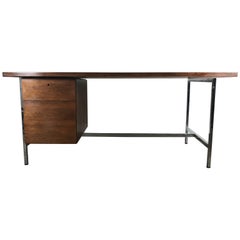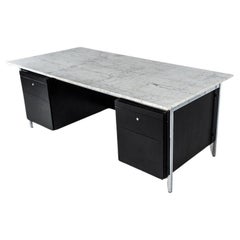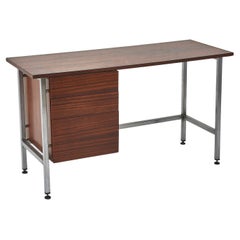1960s Florence Knoll Double Pedestal Executive Desk Chrome Wood Fully Refinished
About the Item
- Creator:Knoll (Manufacturer),Florence Knoll (Designer)
- Dimensions:Height: 29 in (73.66 cm)Width: 32 in (81.28 cm)Depth: 66 in (167.64 cm)
- Style:Modern (In the Style Of)
- Materials and Techniques:
- Place of Origin:
- Period:
- Date of Manufacture:1960
- Condition:Refinished.
- Seller Location:Philadelphia, PA
- Reference Number:Seller: 230307011stDibs: LU8164240957512
Florence Knoll
Architect, furniture designer, interior designer, entrepreneur — Florence Knoll had a subtle but profound influence on the course of mid-century American modernism. Dedicated to functionality and organization, and never flamboyant, Knoll shaped the ethos of the postwar business world with her skillfully realized office plans and polished, efficient designs for sofas, credenzas, desks and other furnishings.
Knoll had perhaps the most thorough design education of any of her peers. Florence Schust was orphaned at age 12, and her guardian sent her to Kingswood, a girl’s boarding school that is part of the Cranbrook Educational Community in suburban Detroit. Her interest in design brought her to the attention of Eliel Saarinen, the Finnish architect and head of the Cranbrook Academy of Art.
Saarinen and his wife took the talented child under their wing, and she became close to their son, the future architect Eero Saarinen. While a student at the academy, Florence befriended artist-designer Harry Bertoia and Charles and Ray Eames. Later, she studied under three of the Bauhaus masters who emigrated to the United States. She worked as an apprentice in the Boston architectural offices of Walter Gropius and Marcel Breuer; Ludwig Mies van der Rohe taught her at the Illinois Institute of Technology.
In 1941, she met Hans Knoll, whose eponymous furniture company was just getting off the ground. They married in 1946, and her design sense and his business skills soon made Knoll Inc. a leading firm in its field. Florence signed up the younger Saarinen as a designer, and would develop pieces by Bertoia, Mies and the artist Isamu Noguchi.
Florence Knoll's main work came as head of the Knoll Planning Group, designing custom office interiors for clients such as IBM and CBS. The furniture she created for these spaces reflects her Bauhaus training: the pieces are pure functional design, exactingly built; their only ornament from the materials, such as wood and marble. Her innovations — the oval conference table, for example, conceived as a way to ensure clear sightlines among all seated at a meeting — were always in the service of practicality.
Since her retirement in 1965, Knoll received the National Medal of Arts, among other awards; in 2004 the Philadelphia Museum of Art mounted the exhibition “Florence Knoll: Defining Modern” — well deserved accolades for a strong, successful design and business pioneer. As demonstrated on these pages, the simplicity of Knoll’s furniture is her work’s great virtue: they fit into any interior design scheme.
Find vintage Florence Knoll sofas, benches, armchairs and other furniture on 1stDibs.
Knoll
As a company that produced many of the most famous and iconic furniture designs of the 20th century, Knoll was a chief influence in the rise of modern design in the United States. Led by Florence Knoll, the firm would draw stellar talents such as Ludwig Mies van der Rohe and Eero Saarinen into its compass. Their work would help change the face of the American home and office.
The company was formed in 1938 by the German immigrant Hans Knoll. He first worked with his fellow ex-pat, the Danish designer Jens Risom, who created furniture with flowing lines made of wood. While Risom served in World War II, in 1943 Knoll met his future wife, Florence Schust. She had studied and worked with eminent emigré leaders of the Bauhaus, including Mies, Walter Gropius and Marcel Breuer. She won Knoll over with Bauhaus notions of industrial arts, and an aesthetic that featured flat and tubular metal frames and angular forms. When Hans died in a car crash in 1955, Florence Knoll was appointed head of the company. It was as much through her holistic approach to design — a core division of the firm was dedicated to planning office systems — as Knoll's mid-century modern furnishings themselves that she brought about the sleek and efficient transformation of the American workplace.
Today, classic Knoll furnishings remain staples of modern design collections and decor. A history of modern design is written in pieces such as the elegant Barcelona chair — created by Mies and Lilly Reich — Saarinen’s pedestal Tulip chair, Breuer’s tubular steel Wassily lounge chair and the grid-patterned Diamond chair by Harry Bertoia.
As you can see from the collection of these designs and other vintage Knoll dining chairs, sofas and tables on 1stDibs, this manufacturer's offerings have become timeless emblems of the progressive spirit and sleek sophistication of the best of modernism.
- ShippingRetrieving quote...Shipping from: Lebanon, PA
- Return Policy
More From This Seller
View AllVintage 1960s American Modern Desks
Steel, Chrome
Vintage 1960s American Modern Desks
Chrome
Vintage 1970s American Modern Desks
Laminate, Oak
Vintage 1960s American Modern Desks
Steel, Chrome
Vintage 1970s American Modern Desks
Aluminum
Vintage 1950s American Modern Desks
Aluminum, Steel
You May Also Like
Vintage 1970s American Mid-Century Modern Desks
Chrome
Mid-20th Century American Mid-Century Modern Desks and Writing Tables
Chrome
Vintage 1970s Mid-Century Modern Desks and Writing Tables
Marble
Vintage 1960s Mid-Century Modern Desks and Writing Tables
Rosewood
Vintage 1950s American Mid-Century Modern Desks and Writing Tables
Aluminum
Vintage 1970s American Mid-Century Modern Desks
Oak
